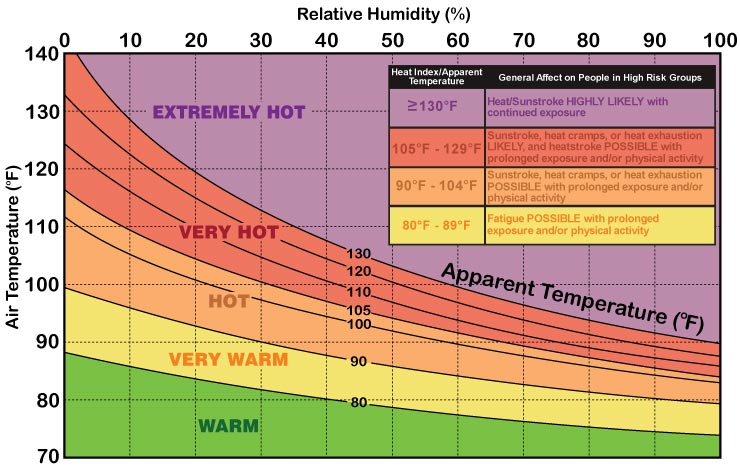Contact Us
To provide feedback on the Community Policing Dispatch, e-mail the editorial board at CPDispatch@usdoj.gov.
To obtain details on COPS Office programs, publications, and resources, contact the COPS Office Response Center at 800-421-6770 or AskCopsRC@usdoj.gov

U.S. Department of Justice
Office of Community Oriented Policing Services
Washington, DC 20530
Let’s face it, a Kevlar vest and duty belt can be a little uncomfortable in the summer, especially in cities with high humidity.
Moreover, heat stress and heat stroke are very real risks, especially for officers working outdoors. It’s important to be aware of the symptoms: profuse sweating, rapid heartbeat and breathing, confusion, dizziness, and nausea. And if you notice them in yourself or others, get help immediately.
Some departments allow officers to wear seasonal uniforms, sometimes with short pants. Others allow individual choices in uniform fabric, for which the best choice is cotton or another lightweight, breathable material.
But there are some easy ways to reduce your chances of overheating no matter what you’re wearing. Though these reminders are mostly common sense, they bear repeating.
10 Tips for Keeping Cool
|
|
|
|
|
|
|
|
|
|
Faye Elkins
Sr. Technical Writer
Sources for more information:
Making Officer Safety and Wellness Priority One: A Guide to Educational Campaigns
Health, Safety, and Wellness Program Case Studies in Law Enforcement
Building and Sustaining an Officer Wellness Program: Lessons from the San Diego Police Department
Subscribe to Email Updates
To sign up for monthly updates or to access your subscriber preferences, please enter your email address in the Subscribe box.







